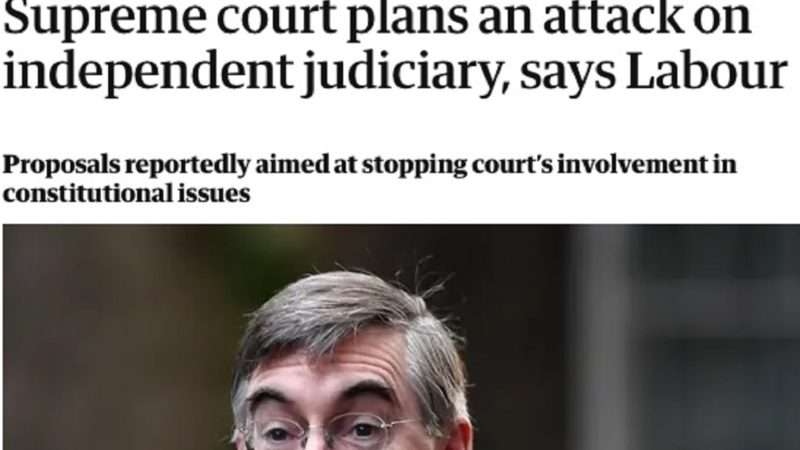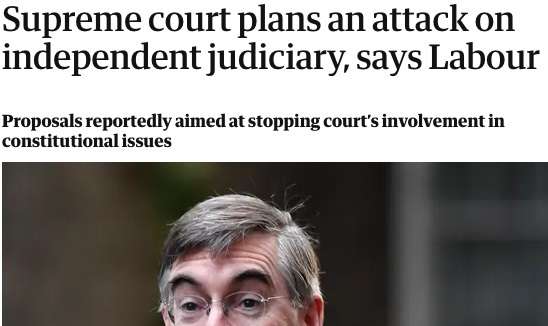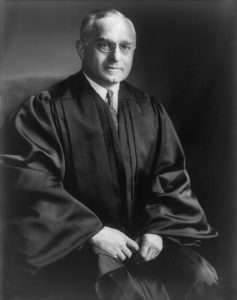Michael Avenatti sued Fox News and various Fox News personalities Thursday for libel, stemming from Fox’s coverage of Avenatti’s Nov. 2018 arrest for domestic violence. Much of the Complaint consists of general condemnations of Fox News, but on p. 23 the Complaint finally comes to the particular allegations about how Fox had supposedly defamed Avenatti in particular. (Ken White [Popehat] has more.) Here are some quick thoughts on why the lawsuit is likely going nowhere.
[1.] Substantial truth: The problem Avenatti is facing is that he was indeed (according to the LAPD) arrested, so Fox News is entitled to report on this arrest, booked, and released on bail. A week later the woman involved (Mareli Miniutti) got a restraining order against Avenatti, based in part on allegations of violence, so that suggests that there was at least reason to believe that Avenatti was more likely than not guilty. (The standard of proof required for a restraining order is preponderance of the evidence; for arrest, it is probable cause.) But in any event, Fox News was entitled to report on the arrest even if the allegations leading to the arrest had proved unfounded.
Avenatti’s points out that some of the Fox News accounts (a) said he was arrested for violence against “his estranged wife” (Miniutti was a girlfriend), ¶ 105, (b) said that he had been not only arrested, but also “charged” (prosecutors ultimately declined to charge him), ¶ 78, (c) said that “her face was swollen and bruised,” ¶¶ 81, 105, and (d) said that Avenatti had shouted at the time, “She hit me first!,” ¶ 105.
But modern libel law embraces the “substantial truth” doctrine, under which “[m]inor inaccuracies do not amount to falsity so long as ‘the substance, the gist, the sting, of the libelous charge be justified.'” If the statement with the errors corrected would still carry the same reputation-injuring message, the errors aren’t treated as defamatory: “The substantial truth test involves consideration of whether the alleged defamatory statement was more damaging to the plaintiff’s reputation in the mind of the average listener than a truthful statement would have been.” The error in identifying the alleged victim, for instance, would pretty clearly count as insubstantial.
I think the references to “charges” is likewise nondefamatory. First, simply saying that he was “arrested in L.A.; charged with assault” is a fair summary of the arrest; it’s common to say that someone was “arrested on charges of …” even when no charges in the sense of an indictment or criminal complaint was filed. But even the statements that erroneously said the D.A.’s office was involved are likely don’t change the gist of the allegation. The average viewer is likely to treat an arrest for domestic violence as roughly comparable in its sting to a prosecution for domestic violence. (Both, after all, require just probable cause, and don’t involve a jury finding or proof beyond a reasonable doubt.)
[2.] Actual malice: Now the claims that the alleged victim had a swollen or bruised face might have a worse sting than just the fact of the arrest, because it suggested that Avenatti had indeed seriously injured Minutti. Likewise, the claim that Avenatti had shouted “She hit me first!,” might have a worse sting as well, because it suggested that Avenatti had admitted that he had hit her.
But here it appears that TMZ had reported this (citing its “law enforcement sources”), and Fox picked up the story from there. Because Avenatti was already a public figure at the time, he can’t recover for such errors (if they are errors) unless he shows what the law calls “actual malice,” which really means that Fox knew the allegations were false or likely false. And I doubt this is so; whether or not it was reasonable for Fox to rely on the TMZ’s account (which might have been part of the inquiry if Avenatti had been a mere private figure), I don’t think that such reliance—even coupled with some Fox personalities’ dislike of Avenatti—qualifies as knowledge that the allegations were false or likely false.
[3.] Statute of limitations: But beyond this, Avenatti probably won’t even get to any of this because the publications were in Nov. 2018, and under both the law of California (where Avenatti lives) and New York (where Fox News broadcasts from) defamation claims must be brought within one year of publication.
It’s true that in Delaware, where the lawsuit was filed, the statute of limitations for libel is usually two years. But that’s for defamation cases to which Delaware law applies; in some cases, Delaware courts apply out of state law, following the Restatement (Second) of Conflicts of Law. Under the Restatement (§ 150),
(1) The rights and liabilities that arise from defamatory matter in any … broadcast … are determined by the local law of the state which … has the most significant relationship to the occurrence and the parties ….
(2) When a natural person claims that he has been defamed by an aggregate communication, the state of most significant relationship will usually be the state where the person was domiciled at the time, if the matter complained of was published in that state.
So California law will likely apply, since I believe Avenatti was domiciled in California in 2018; and the runner-up candidate would be New York (not Delaware). And, as I said, the California and New York statutes of limitations preclude his claims.
[4.] Libel-proof plaintiff? The first paragraph of the Complaint’s discussion of the allegedly libelous statements says,
At the time of this arrest, Mr. Avenatti was 48 years old and had never been previously arrested in his life for any reason, even as a juvenile. He had never been charged with any crime and he had no criminal record.
The “had never been” are, of course, the “past perfect,” which indicates what was true as of a particular past time (here, 2018). Of course, we wouldn’t say he “has never been charged with any crime” (the present perfect), because as of now Avenatti has been famously charged with “perjury, fraud, failure to pay taxes and other financial crimes” and convicted of attempted extortion and fraud.
Do Avenatti’s felony convictions make him a “libel-proof plaintiff” (as in the recent Lenny Dykstra case)? It’s not clear whether California would recognize the “libel-proof plaintiff” doctrine; but in any event, in most of its formulations the doctrine asserts that “a plaintiff’s reputation with respect to a specific subject may be so badly tarnished that he cannot be further injured by allegedly false statements on that subject” (emphasis added). In then-Judge Scalia’s words (the opinion was later reversed, but on quite unrelated grounds), any broader version of this theory,
must be rejected because it rests upon the assumption that one’s reputation is a monolith, which stands or falls in its entirety. The law, however, proceeds upon the optimistic premise that there is a little bit of good in all of us—or perhaps upon the pessimistic assumption that no matter how bad someone is, he can always be worse.
It is shameful that Benedict Arnold was a traitor; but he was not a shoplifter to boot, and one should not have been able to make that charge while knowing its falsity with impunity…. Even the public outcast’s remaining good reputation, limited in scope though it may be, is not inconsequential. (“He was a liar and a thief, but for all that he was a good family man.”)
Here, Avenatti’s reputation for honesty and law-abidingness has by now doubtless been destroyed by his criminal convictions. But that is not the same “specific subject” as the abuse allegations; and indeed some people in some contexts (perhaps social or romantic) may forgive a person’s financial improprieties or even (nonviolent) extortion, but not his having allegedly badly beaten a girlfriend. And while some courts do suggest that “habitual criminal[s]” might be libel-proof as to any subject, that is likely applicable only to those who “possess a life-long record of criminal conduct,” which Avenatti did not (even taking into account the likely hyperbole of the “life-long record” requirement).
Moreover, returning to the past perfect point, for at least the few months between November 2018 and his financial crimes indictment, Avenatti’s reputation had not yet been damaged by those accusations. During that time, he wasn’t “libel-proof” under even a broader formulation of the doctrine, and his reputation may well have been injured.
So Avenatti seems likely to lose: most clearly, I think, under the statute of limitations, and
[5.] Anti-SLAPP statute: There’s also a question of how much Avenatti will lose—will he just lose the case, or will he also have to pay the defendants’ attorney fees? That too depends on which state’s law applies: There’s a good argument that California’s should apply, in which case Avenatti would indeed be on the hook for fees, if he loses, and will face an early anti-SLAPP motion. But if the Delaware court disagrees, and chooses to apply Delaware’s anti-SLAPP statute, then fees and an early motion to strike won’t be available, since Delaware’s statute only covers disputes related to applications for public permits, zoning changes, and the like.
Thanks to Floyd Abrams, Lyrissa Lidsky, and Ken White for their guidance on specific matters that I touch on above.
from Latest – Reason.com https://ift.tt/3nwlJil
via IFTTT




